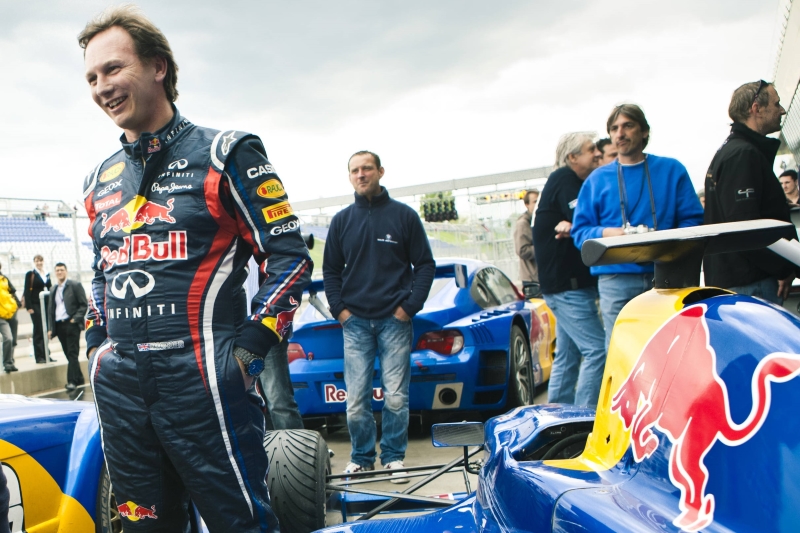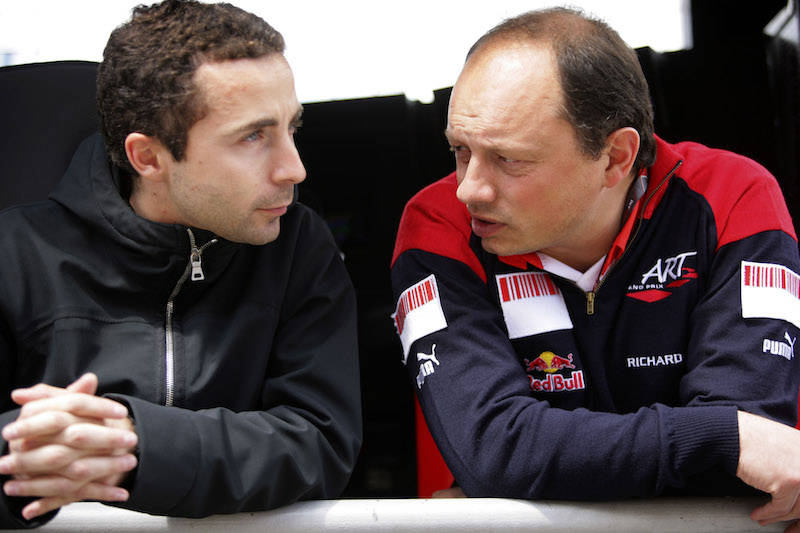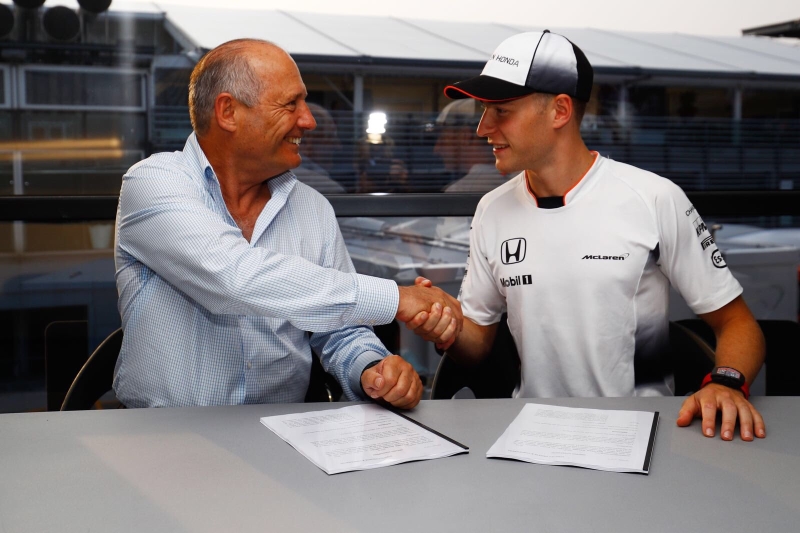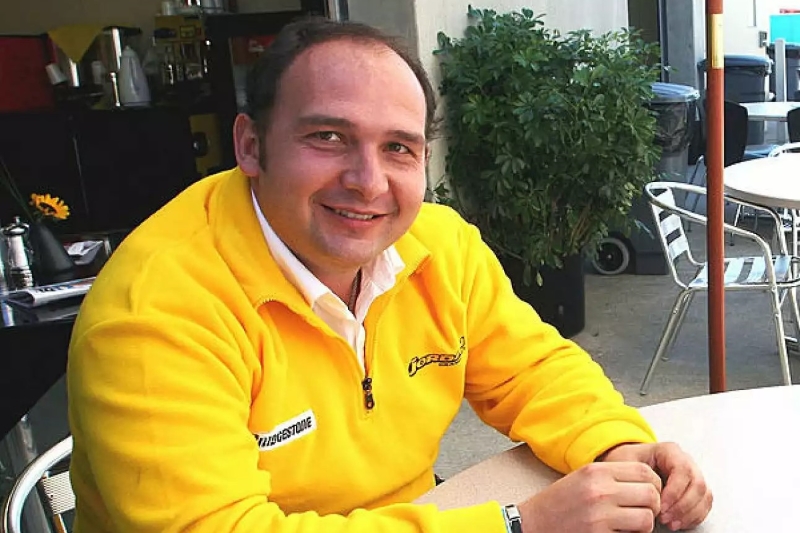The Alpine F1 team has just signed Hitech GP boss Oliver Oakes as its new team principal. Who else has gone from running a junior single-seater team to managing somebody else’s F1 operation in a job move?
Christian Horner ENGLAND Arden > Red Bull Racing

Photo: Red Bull Content Pool
Horner not only started off as a driver, but also started his own team while still a driver. He got up to Formula 3000 (the Formula 2 of its day) in his junior single-seater career, and it was what he had to do to reach that step that sent him on the path that would one day make him one of the most successful team bosses in international sport history.
1976 Formula 1 world champion James Hunt told Horner that if he wanted to step up from British Formula 3, where he had been struggling for results, he should: “Get your dad to buy a car and a trailer and do it yourself. That way you’ll control your own destiny.” So that’s what he did.
The Horners bought an F3000 car and a 40-foot trailer, recruited four people and got started in 1997, their work rewarded with a point in the final race of the Int. F3000 season. F1 supremo Bernie Ecclestone then outlawed one-car teams, so the Horners amalgamated with Kurt Mollekens [another driver/owner] for 1998. Horner’s father convinced him to prioritise running their Arden team rather than racing for it in 1999, and he did that until Red Bull came calling in 2004 after buying the Jaguar F1 team. The rest, as they say, is history and Horner has led Red Bull Racing to six constructors’ titles.
Frederic Vasseur FRANCE ART GP > Renault

Photo: Alastair Staley/GP2 Media Service
An engineer and an entrepeneur with a fine eye for which young drivers would become the future superstars of F1.
Vasseur created his own F3 engine preparation firm in 1992 while at university, then in 1996 he established the ASM team to race in the category. The first title came in the 1998 French F3 season, there was another in 2002 and then from 2004 to 2009 he ran every single F3 Euro Series champion. During that time he partnered up with Nicolas Todt [pictured with him above], and ASM turned into ART Grand Prix.
It expanded into the new GP2 series in 2005 and did the title double, then again in 2006 and in single-seaters’ second tier the ART GP outfit now has 14 titles. Four of those have come since Vassuer left in 2016 to become Renault’s F1 team principal, a job he only lasted a season in following disagreements with Cyril Abiteboul, the team’s managing director.
Sauber hired Vassuer the next summer and he remained as team principal there for six years (while the team turned into Alfa Romeo Racing) before leaving to take on the high-pressure job of leading Ferrari’s legendary F1 squad.
Trevor Carlin ENGLAND Carlin > Jordan

Photo: Carlin
Carlin’s first team management role was at Bowman Racing in F3, then a few years down the line he got hired to lead category rival West Surrey Racing. Once WSR headed to touring car racing, Carlin was looking for a way back into junior single-seaters and the solution he found in 1996 was launching his own team: Carlin Motorsport.
The name became synonymous with British junior single-seaters, not just for the domestic scene but achievements abroad, and like Vasseur he became renowned for signing young drivers and putting them on the map and ultimately on the way to F1.
After a successful first year with his team in single-seaters’ second tier in Formula Renault 3.5, he got his F1 summoning as the Midland Group bought Eddie Jordan’s team and appointed Carlin as their sporting director for 2005. But by June he had stepped down from the role, and upon returning to his own team achieved even more success.
While he never returned to F1, Carlin did take his team to single-seaters’ top level. It ran Team Lebanon and Team South Korea’s cars in A1GP, ran Mahindra’s cars in the inaugural Formula E season then raced in IndyCar from 2018 to 2021. Last year Rodin Cars took over the team, and Carlin ‘retired’ to become a magazine columnist while his wife Stephanie – who worked for the team from 2006 onwards and was deputy team principal for one-and-a-half seasons – is now McLaren’s F1 business operations director and works very closely with their driver development programme.
Ron Dennis ENGLAND Project Four Racing > McLaren

Photo: McLaren
Dennis worked in F1 as a mechanic for world champion drivers before he and a Brabham collegue set up Rondel Racing to compete in European F2. They tasted success straight away with Graham Hill in one of their cars, and the team took five championship wins over three seasons before the funding began to dry up and Dennis left.
He started over, and remained in junior single-seaters, but it took multiple attempts to have another long-lasting team. Project Three Racing competed in European F2, as did Project Four Racing which delivered Dennis a further four wins and two British F3 titles. He wanted an F1 return, and McLaren made it happen by effectively absorbing P4R at the end of 1980.
That meant Dennis had an ownership stake in McLaren as well as being its team principal, a role he held until early 2009 when he handed it over to long-time deputy. In 2014 he decided to reclaim control of the team as CEO, and then got voted out by the team’s board in late 2016. He was recently knighted.
Colin Kolles ROMANIA Team Kolles Racing > Jordan

Photo: Jordan F1
At the same time it had Carlin in a leadership role, Jordan had Kolles as its managing director. Carlin was signed first during the off-season, but it was the later appointment who proved more suitable for the political world of F1.
Kolles was more famous within motorsport for being a qualified dentist than for his Kolles Racing team which through the first half of the 2000s competed in German F3 and then the F3 Euro Series. When Midland came calling, Kolles left his dad to run his team and did not return until 2009 having kept his F1 job through multiple changes of name and ownership at the team that is now Aston Martin. Under his watch, it rarely contended for points.
In his absence, Kolles Racing had gone to touring cars and then prototype sportscars, which was its home until the end of last year following several name changes of its own. Kolles had another three gos at F1 in the 2010s, being Hispania team principal, leading a takeover of a Caterham team which fell into administration and out of business three months after he joined, then supporting the stalled Forza Rozza Racing project in Romania to create a F1 team.